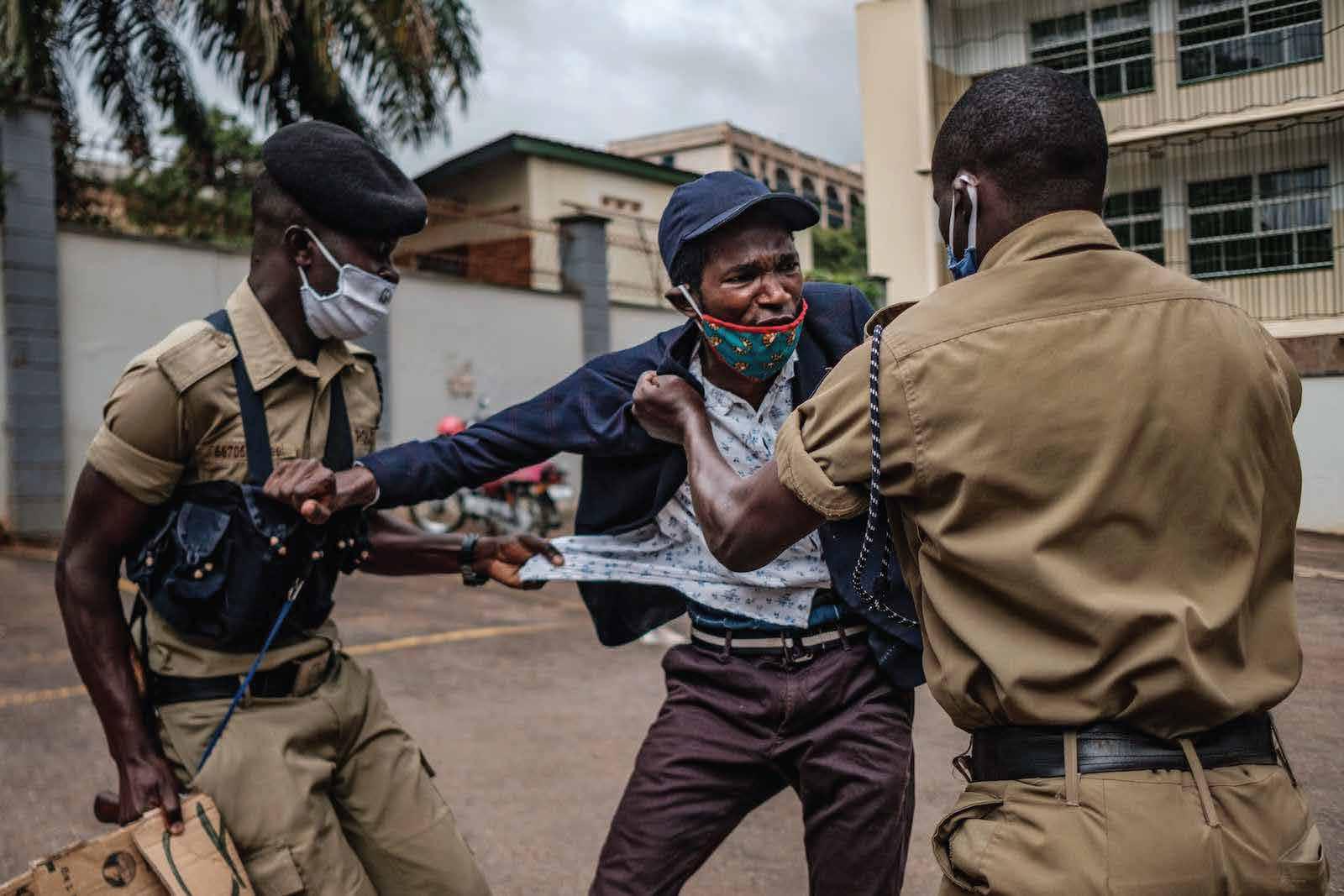
24 minute read
There Is Still A Knee On Our Neck And We Can’t Breathe
by Sindiso Jele
When the day of Pentecost had come, they were all together in one place. :2 And suddenly from heaven there came a sound like the rush of a violent wind, and it filled the entire house where they were sitting. :3 Divided tongues, as of fire, appeared among them, and a tongue rested on each of them. :4 All of them were filled with the Holy Spirit and began to speak in other languages, as the Spirit gave them ability. :5 Now there were devout Jews from every nation under heaven living in Jerusalem. :6 And at this sound the crowd gathered and was bewildered, because each one heard them speaking in the native language of each. :7 Amazed and astonished, they asked, "Are not all these who are speaking Galileans? :8 And how is it that we hear, each of us, in our own native language? :9 Parthians, Medes, Elamites, and residents of Mesopotamia, Judea and Cappadocia, Pontus and Asia, :10 Phrygia and Pamphylia, Egypt and the parts of Libya belonging to Cyrene, and visitors from Rome, both Jews and proselytes, :11 Cretans and Arabs-- in our own languages we hear them speaking about God's deeds of power." :12 All were amazed and perplexed, saying to one another, "What does this mean?" :13 But others sneered and said, "They are filled with new wine." Acts 2:1
INTRODUCTION
he 2020 Easter was the first of its kind to me in ministry. I T am used to the Easter pilgrimage, journey of faith influenced by the Easter episodes that led to the crucifixion of Jesus, his death and his resurrection which is the story of insurrection especially to those who are in the margins. The stories are full of pain, betrayal, brutality, but they also include the stories turning of the table (transformative actions). As I continue to reflect on these stories in the context of racism and corruption, there are people, who want us to believe and accept that we are in the same boat in this time of difficulty. I don’t agree; however, I may agree that we are in the same ocean but not boat. In this article, I will deliberately use the phrase, “Jesus of Nazareth” as opposed to Jesus Christ. The title “Christ” seem to be elitist in this article, it plays down the life of the young Galilean, son of a carpenter. It was not by choice that Jesus had the identity of the soil of Nazareth, which is in the northern part of the country (of Galilee). And, according to the Matthew, southern Herod(s) were so dangerous and wanted to kill him. The phrase “Jesus of Nazareth” captures well how brutal the Herod(s) (of the Roman Empire) were and community activism was embodied in the life of Jesus of Nazareth. It was his hate of injustice that led him to be killed and it was his love of justice that led him to be anointed.
Therefore, in order for us to talk about the breaking away from Babylon; i.e. to remove the knee off the community, we need to engage the Jesus of Nazareth first before we engage the Jesus Christ whose identity was captured by the religious elitist.
This text can be better read within the Easter narratives: Jesus enters Jerusalem…. There were people who wanted to silence the voices they did not agree with….If they are silenced the stone will speak (Justice).
As he was now approaching the path down from the Mount of Olives, the whole multitude of the disciples began to praise God joyfully with a loud voice for all the deeds of power that they had seen, :38 saying, "Blessed is the king who comes in the name of the Lord! Peace in heaven, and glory in the highest heaven!" :39 Some of the Pharisees in the crowd said to him, "Teacher, order your disciples to stop." :40 He answered, "I tell you, if these were silent, the stones would shout out." Luke 19:37
A demonstrator is arrested by police at a protest for more government food distributions during the Covid-19 crisis, 18 May in Kampala, Uganda (Sumy Sadurni/AFP via Getty Images)

This deals with theological and ideological tolerance in society or community, except that those you consider to be ‘...dump stones…’ do have some prophetic voices of insurrection that can inform and transform the society.
Jesus of Nazareth proceeded to the temple where he was to attend to economic corruption and injustice; I am reminded of both the Zimbabwe and South Africa scenarios, where the politician, and or those connected to the politicians looted the monies meant to fight the COVID-19 pandemic. This goes beyond corruption but an insult to the basic moral compass, an insult to the very philosophy of ubuntu that defines our Black African-ness and African spirituality where the wellbeing of the society comes first and cannot be equal to the selfishness of the politician and their cronies.
Then Jesus entered the temple and drove out all who were selling and buying in the temple, and he overturned the tables of the money changers and the seats of those who sold doves. Matt 21:12
And he gives reasons for that reformation and transformation of the economic system:
He said to them, "It is written, 'My house shall be called a house of prayer'; but you are making it a den of robbers." Matt 21:13
The way the business has been conducted has become a ‘…knee on the peoples’ necks…’ As he called and implemented these reforms, he provoked the systems that were benefiting from it, even those who did not like his ministry had a chance to accuse him.
DARK MOMENTS OF THE EASTER NARRATIVES
My church’s Easter calendar is Maundy Thursday, Good Friday, resurrection Sunday. There is no activity for Saturday. According to my reading of the Easter narratives, the period of hopelessness is the Saturday of the Easter. Then it gives the impression that Saturday is not as valued as another day of the Easter period. In other words, my church disappears when it matters most. People were not sure whether or not Jesus of Nazareth would be resurrected as he indicated to come and remove the knee on the neck of the community. Saturday becomes critical in the theology of hope as it is the one of those moments that define the cry “I can’t breathe”. This could give testimony that each paradigm has its own gramma that helps to name Babylon whose knee is on the neck of the people. But we need to accept that Babylon is not universal, each race, social group has its own Babylon. Some activists can be Babylon to others. Be careful in the use of the theological gramma lest you commit the very crime you speak against.
AFTER RESURRECTION UNANSWERED QUESTIONS
When Jesus of Nazareth was killed by the Roman Empire (Babylon) with the conspiration of the religious leaders of the time, that is a replica of the church going to bed with the oppressor. As such it compromises its ability to remove the knee from the neck of the community as it becomes an active participant in the oppressive system. Jesus stood according to the people of the first century Palestine, and still hold the belief that if he was to be in Palestine today, would ask him the same question, though with changed gramma:
So when they had come together, they asked him, "Lord, is this the time when you will restore the kingdom to Israel?" (the independence of Palestine and remove the knee of the apartheid in Palestine) :7 He replied, "It is not for you to know the times or periods that the Father has set by his own authority.” Act 1:6
The problem was that what the community had was political and Jesus was to attend to that. Jesus was aware that there was a yoke on the necks of the community, so the spiritualisation of the question is scandalous. Jesus of Nazareth did not die because people were sinners, this is to make the victims guilty. He died because there were knees on their necks, he wanted to remove those knees as the people could not breathe. Even today, we still have the same question; Jesus affirms our cry; (cf. Matt 11:29 “Take my yoke upon you, and learn from me; for I am gentle and humble in heart, and you will find rest for your souls. :30 For my yoke is easy, and my burden is light.")
This was purely a political statement, therefore the suggestion by Jesus of Nazareth was the socio-political alternative. We still speak of corruption, economic looting, gender-based violence, nepotism at work places, there is freedom before speech and no freedom after speech, and these were a challenge when Jesus was still there and still with the world today, hence the title of the devotion.
ASCENSION
This episode becomes interesting as it is presented as if the disciples were just there silently looking to the ascending Jesus of Nazareth. I don’t agree. When Jesus of Nazareth was resurrected, the people’s hope in the restoration of the Kingdom of Israel was re-ignited (Acts 1:6ff). His ascension would score against the hope again. Maybe this could tell as to why they were looking at him when he went. Those looking at him, I suppose, each had a different question. Imagine what the Black Americans would be saying, the Zimbabweans, the Northern Mozambicans under the attack of the ISIS related group, the raped women, the immigrant workers, and the Rohingya, and the Black Africans dying in the Mediterranean seas. Jesus ascends leaving all these with knees on their necks.
THE COMING OF THE HOLY SPIRIT!
“When the day of Pentecost had come, they were all together in one place. :2 And suddenly from heaven there came a sound like the rush of a violent wind, and it filled the entire house where they were sitting. :3 Divided tongues, as of fire, appeared among them, and a tongue rested on each of them. :4 …and began to speak in other languages, as the Spirit gave them ability….” Acts 2:1
They started to speak the language of the people. When the church or a mission organisation start to speak the language of the communities it is serving, then we will speak of the them having received the Holy Spirit. If you are not speaking the language of the people then you are ministering and prophesying to yourself. Speak the language of the raped woman, trafficked girls, young men working in the farms whose future is just but dark, speak the language of the migrant workers in Singapore, the dying African in the Mediterranean and waters of Libya as economic refugees.

The question the readers of the bible must ask is: What is/was the language of the people? Was it the language of economic injustice, racial bullying and genocide, or the people crying that there is the knee on their necks? Central to my argument is the question (s); what language was spoken by those who were looking at Jesus of Nazareth, what exactly were they saying, I don’t think it was just silence gazing up the skies. Interesting there were people who celebrated that their language was spoken, at least they will now be heard. As such, it must be argued therefore that Theology is not shy to take sides. It can either support the oppressor or the one who cannot breathe. Theology is not a neutral exercise; it is bold, intentional, decisive and chooses the language of those who are oppressed and/or exploited.
PRAYER
My prayer for and with those who are struggling to remove the knee on their necks and trying to raise the voices to be heard by the ascending Jesus of Nazareth:
May God bless us with discomfort at easy answers, half-truths, and superficial relationships, and leadership, so that we may live deep within our hearts.
I can’t breathe
May God bless us with anger at injustice, oppression, and exploitation of people, so that we may work for justice, freedom and peace.
I can’t breathe
May God bless us with tears to shed for those who suffer from pain, rejection, starvation and war, so that we may reach out our hands to comfort them and turn their pain into joy.
I can’t breathe
And may God bless us with enough foolishness to believe that we can make a difference in this world, so that we can do what others claim cannot be done.
I can’t breathe! I can’t breathe! And I can’t say Amen!
We are, in 2020, navigating uncharted waters. To face the current disruptive ways of living requires discernment and radical engagement (DARE). Struggles of the past (poverty, racism, sexism, climate change, and a host of identity- and community-based injustices) continue and intensify in 2020, and Covid-19 comes on top of those to further reveal/underscore the systemic intersecting ills that prevent the ourishing of life for all. Our challenge is still the same – DARE.
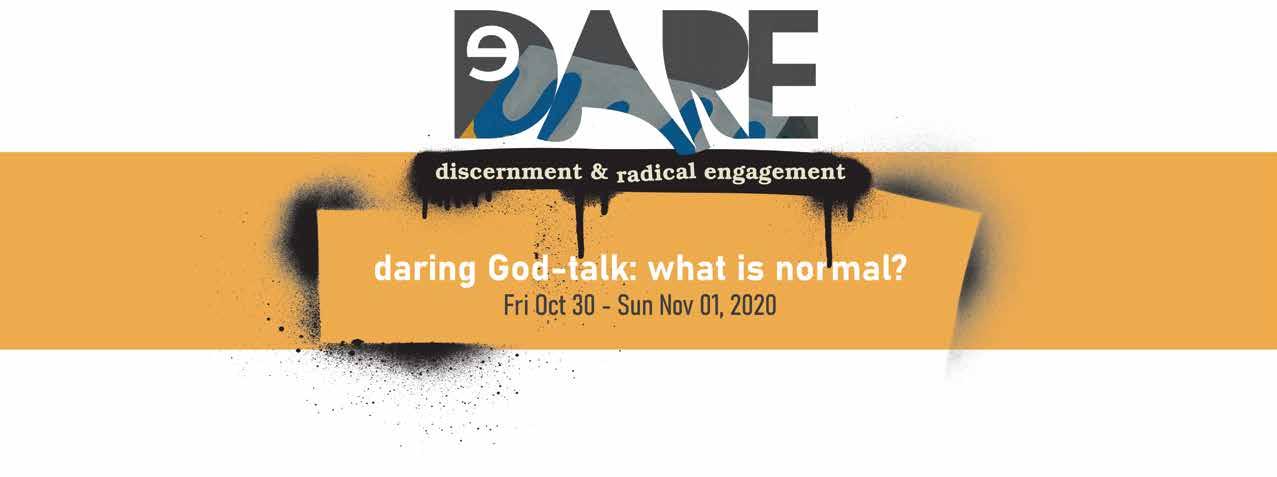
More than just a crisis in the global context, the COVID-19 pandemic has forced us to function in a so-called new normal. It challenges us to review the e ect of our God-talk. Who pro ts from, and who is minoritized due to, what our God-talk takes to be normal? This question opens us to other concerns: the shape(s) of mission, ministry and being church in the context of the Pandemic; the role of theological education in shaping the future of mission and ministry, and the "nature of the context" that shapes our thinking and behaviour.
This year, CWM’s DARE forum moves to a virtual platform to connect and learn from each other on the impacts of the pandemic and on the di erent ways our responses will (re)shape, a rm and challenge our God-talk. Taking COVID-19 as an opportunity to re ect on the ‘normal’ assumptions and practices of theology, mission and ministry, presenters from di erent regions of the world will present their views on the impacts of the pandemic, and on di erent ways we are and might respond to it.
Stay tuned for more information about presenters and their topics, webinar schedule and registration details.
Watch this space.
Women of Worth (WOW) Dissenting Women is a series of podcasts by Council for World Mission (CWM) on the topic, ‘Women of Worth’ (Dissenting Women). The series is part of our effort to challenge thought and instigate action, starting conversations on issues and topics which beckon for attention and response.
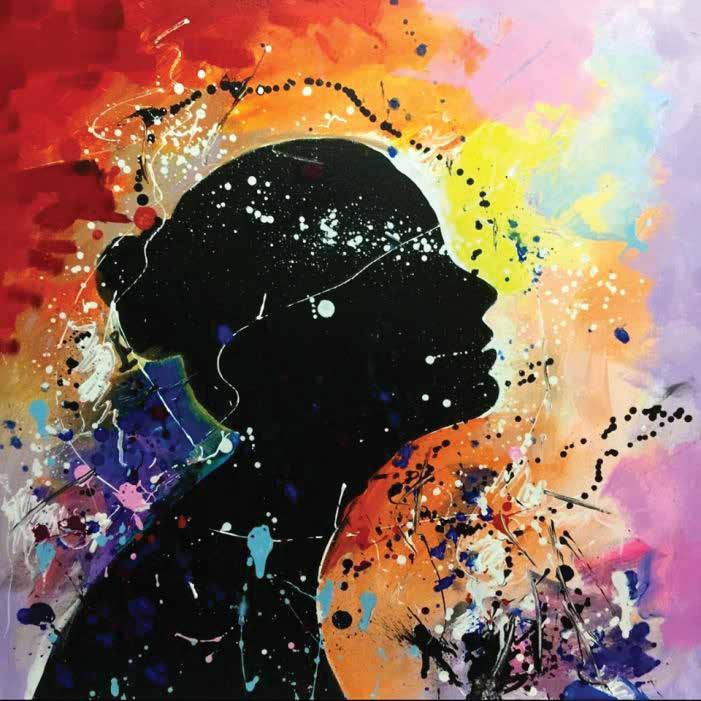
Four topics will be covered in nine podcasts which will be focused on women whose actions challenged the status quo of patriarchy in their societies. Each podcast will feature biblical characters who were dissenting women who acted in the face of patriarchy - systemic exclusion of women and preferential favour of men particularly in leadership. The topics will reflect SMART women, using the stories of Esther and Rahab; SHAMED women using the stories of Tamar and the unnamed woman caught in the act of adultery; STRONG women, using the stories of Deborah and Rebekah; and SILENCED women, using the stories of Vashti and Hagar. These podcasts will provide opportunity to explore topics such as gender-based violence, intimate partner abuse and incest.
The series will feature voices of women across the regions of CWM through interviews, conversations and presentations and is produced by the CWM staff team in the East and South Asia and Caribbean regions.
Visit https://www.cwmission.org/wow to listen to the series.
SMART WOMEN
SHAMED WOMEN
STRONG WOMEN
The speakers in this category look at the Biblical characters of Esther and Rahab. The stories may be found in the book of Esther and Joshua 2. The key areas of focus are on how Esther strategised in the face of the threat against the Hebrews and Rahab’s action which saved her life and that of her family. They also offer words of encouragement to women who must act SMARTLY to challenge an unjust status quo of patriarchy.
The speakers in this category focus on Gender Based Violence (GBV) and incest by highlighting the biblical characters of Tamar and the woman caught in act of adultery. We are taken to the Old Testament for the story of Tamar in 2 Samuel 13 and to the New Testament for the woman caught in the act of adultery, John 7:53 to 8:11. They engage in a conversation guided by the question: How can women today 'rise to life with Jesus? They discuss how women may experience restoration and create a new reality for themselves from the SHAME of having experienced GBV, Sexual Gender Based Violence or incest? In closing, they look at how we may participate in creating the kind of life flourishing communities which will enable these women to rise to life with Jesus.
The speakers use the example of two women who exercised their influence Deborah and Rebecca, (the mother of Jacob and Esau). Judges 4 and 5 give Deborah’s story and the focus on Rebecca’s influence on her younger son, Jacob, may be found in Genesis 27. The speakers in the podcasts look at the ways Deborah and Rebecca’s actions and circumstances challenge the status quo of patriarchy. They also offer women helpful tips on how to exercise their influence even in contexts of limitations in STRONG and positive ways. You will gain an understanding of how there are opportunities which may be seized or have been seized in contemporary life to utilise strengths to exercise influence for good and to go against the stereotypes of women as weak.
In these podcasts, the stories of Hagar (from Genesis 16) and Vashti (from Esther 1) are discussed. They were both victims of injustice in a patriarchal society. One experienced injustice at the hands of another woman, the other by her intimate partner. The speakers look at how SILENCED women can find and use their voice, how we can be alert to the perpetuation of injustice against women in our circles.
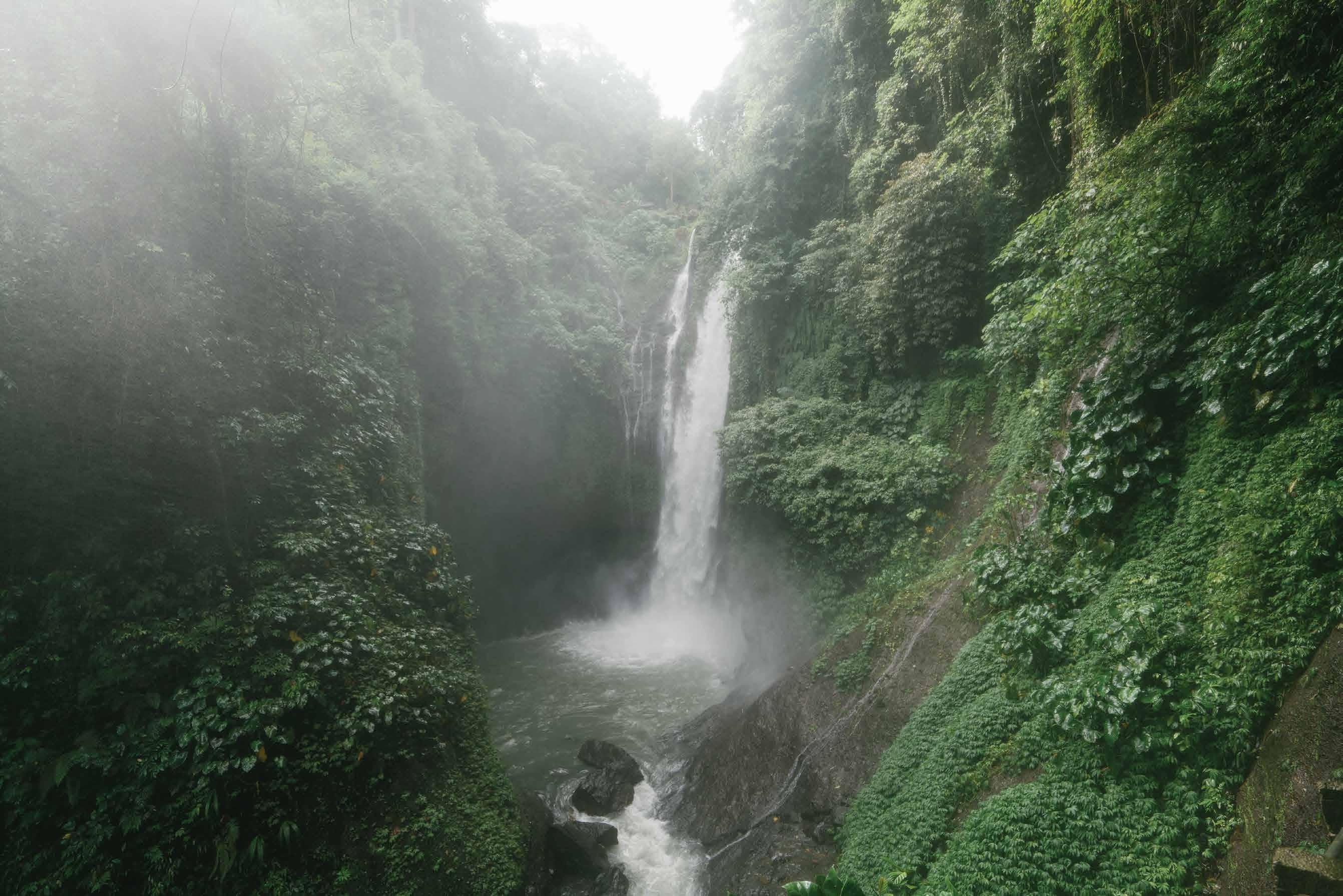
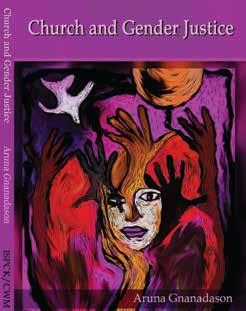
“Re-imagining Church as Event: Perspectives from the Margins" book series to be released.
The first Book of the "Re-imagining Church as Event: Perspectives from the Margins" Series is coming soon.
Margins" series:
Church and Gender Justice
mission are we looking for? What kind of religion, politics freedom and encounters the Roman system of
by Aruna Gnanadason
Women have always been marginalised by society and the church; their labour and skills, and their theological and spiritual gifts, are ignored or undervalued. It is a struggle for them to move beyond the walls of patriarchy, class, caste and gender. The book seeks to explore the role of the Christian faith and the use of the Bible in perpetuating patriarchy and looks at ways to rediscover the liberation potential of the faith and gospel.
Gender justice is the new wine that cannot be poured into the old wine skin of a gendered texture and nature. Birthing this new vision of being church is challenge of the hour. For this to happen, we need to engage in more critical conversations about the meaningfulness and urgency of bringing about gender-just relations in the domestic space and in the public sphere. The coming into being of a gender-just church could happen in the bargain, though not without the birth pangs. -Kochurani Abraham
The book lays bare the gender politics that are involved, suggesting ways in which gender justice can be achieved within the church and society. It further addresses issues of patriarchy in the church, sexuality and the human body, topics that the church has long shied away from. I am sure that this work will serve its purpose of providing churches and Christians with resources in the struggle for gender justice.
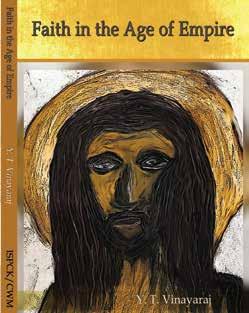
Upcoming book launch: Faith in the Age of Empire by Y.T Vinayaraj
Here is what reviewers have to say about the second book in the “Re-imagining Church as Event: Perspectives from the
What kind of God, church, Christ, human, sacrament and and theology do we uphold? These are some of the fundamental questions that determine, design and reshape our faith, our spirituality and, of course, ourselves today. In the Old Testament, faith facilitates the people of God to envision a radical life of freedom and justice in the context of slavery and exploitation. In the New Testament, the Jesus movement adds new meaning to the faith practices of God’s people. It envisions a radical civil society of justice and -Philip Vinod Peacock
subordination. Reclaiming the validity of Christian practices is the need of the hour in this age of globalising empire too in order to confront various forms of domination and fragmentation and to envision a world of hope and justice.
The book tries to initiate discussions on the imperial desires and designs deployed in Christian doctrines in the early period of the church to this day. It tries to discuss the need to reshape Christian theologies and doctrines in a postcolonial sensibility.
In order to get to the good news, it is important to develop an understanding of the bad news. This is what Vinayaraj does in this volume, guiding us from the oppressions of the Roman Empire, with which early Christians had to contend, to the medieval empires, European empires of colonial modernity, and the more current embodiments of empire in our own globalising age. -Joerg Rieger
The specific empire in Vinayaraj’s sight is a religious one—Christianity, which spread over India along with the colonial expansion of the British Empire. With the mana of postcolonial spirituality, Vinayaraj shows that the Christian faith could be released from the colonial legacies of Christianity. -Jione Havea
About the Series
In these eleven volumes, a collective of Indian theologians envisions Church as an Event that happens in particular contexts in the life of the communities at the margins. They argue that in the life of the communities who experience on their bodies the violence and hegemony of dominant power relations, morality, and religious dogmas and practices, the church happens as counter cultural experiences that disrupt the logic of the prevailing order. These experiences enable and empower them to affirm and celebrate their differences, knowledge and beauty even as they weave their liberation. Church as event is a call to rising to life, creating life-flourishing communities that live out the foretaste of the reign of God.
Inequality – how wealth becomes power
The biggest, most pressing social problem that plagues the world today is inequality. It is apparent that for the rich and highly industrialised countries, wealth tends to be unevenly distributed within its population, leaving many trailing way behind those who are obnoxiously rich and unimaginably powerful. This film by DW Documentary explores why the middle class and poor are doomed to be caught within the perpetual cycle of poverty while the rich gets richer, and how it would possibly be a threat to our society.

https://bit.ly/2FkZtXR
Do Not Resist
Do Not Resist is a documentary about the militarisation of the police force in America and what it means for the American people in the future. In the recent spate of wrongful and unjustified African American deaths committed by law enforcement officers, Craig Atkinson gives viewers a glimpse of how even police departments in smaller towns are equipped and empowered with military grade fire power and equipment and taught to perform “righteous violence” when required.
First They Killed My Father
A film directed and co-written by Angelina Jolie, depicts how the lives of a young Cambodian girl and her family were disrupted and torn to shreds due to the Khmer Rouge regime. Surrounded by death and despair, the 5-year-old girl was forced to learn the propaganda of hate, to be recruited as a child soldier and to lay mines in the jungle. Through the harshness of the environment of concentration camps, Ung and her family were separated time and again while they fend to keep themselves alive in hope to reunite with one another again, in hope of surviving starvation, illnesses and the war.
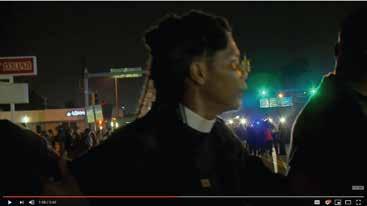
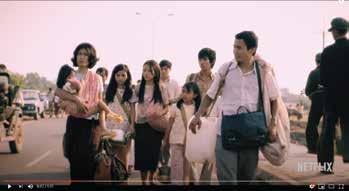
https://bit.ly/2CkWrSa
Jobless: Life Unemployed
Real Stories gives us a glimpse of how joblessness in Britain is like for families through the eyes of the children. It catches the struggles and helplessness of how the families tries hard at coping through the stress of paying the bills and staying afloat amidst facing countless of rejections from potential hires after being made redundant from their previous employments. Many of them have been with a single employer for a long time and are experiencing being out of a job for the first time in their lives, is making it difficult for them to be accepted back into the workforce due to various reasons.
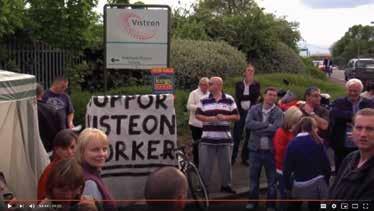
https://bit.ly/3kEMyjI
Charm City
The city of Baltimore in the United States of America is a highly volatile environment for its inhabitants. With high occurrences of daily homicides due to poverty, inequality and violence, its community needs to fight hard for their livelihood and home. Fortunately, there are dedicated government personnel like community leaders, law-enforcement officers and councilman working together with a common vision to eradicate the common evil that plagues the city.

Mind The Gap: Exploring Gender Inequality
The documentary explores if there really is equal rights between men and women today. If so, then how are women equal in rights when it comes to politics, before the law or even with the financial aspects of their lives? If there is change, how much has been done and what need to be improved further? Sexism is still largely prevalent in society, which is why, until today, jobs that are held by women are still paid lesser than their male counterparts as well as access to the availability of work.
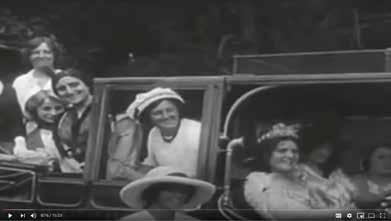
https://bit.ly/3ivaYKu
The COVID-19 recovery can be the vaccine for climate change
“There are clear connections between COVID-19 and the climate crisis. For starters, climate change increases the likelihood of COVID-type pandemics — through changes in the habitats of disease vectors, for example, or increased inter-species contact resulting from deforestation.”
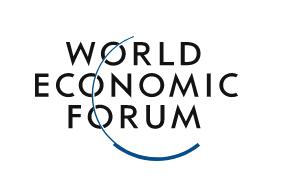
https://rb.gy/aiy0lb
Before The Flood
“If you could know the truth about the threat of climate change — would you want to know? ‘Before the Flood’, presented by National Geographic, features Leonardo DiCaprio on a journey as a United Nations Messenger of Peace, traveling to five continents and the Arctic to witness climate change first-hand. He goes on expeditions with scientists uncovering the reality of climate change and meets with political leaders fighting against inaction. He also discovers a calculated disinformation campaign orchestrated by powerful special interests working to confuse the public about the urgency of the growing climate crisis. With unprecedented access to thought leaders around the world, DiCaprio searches for hope in a rising tide of catastrophic news.”
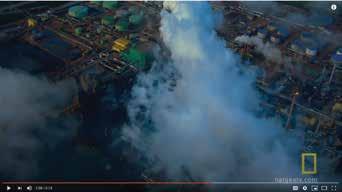
https://bit.ly/2DE21jr
Living Without Water
“What's it like to live without running water? In Peru's sprawling capital, Lima, this is the everyday reality for 1.5 million children and adults, forced to pay up to a week's salary for just one day's water. And the problem isn't confined to the capital, across the country, the shortage of water is putting lives in danger and provoking conflict, as it displaces communities and threatens their agricultural livelihoods. This film goes right to the heart of the water crisis - showing how society's poorest are caught in the middle of a struggle between business, climate change and international politics.”
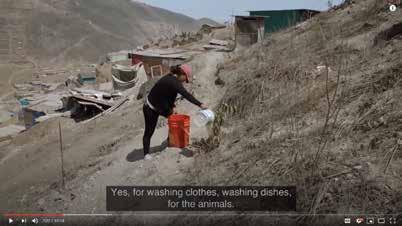
https://bit.ly/31Q2sz9
Climate Warriors
“The film presents people from diverse backgrounds who show resistance against the adverse and devastating effects of climate change on our planet. Those climate warriors are strongly aware that we need a fast transition in order to save the environment and keep the human rights in balance in favour of peace. They raise their voices for resistance to lobbyists and inhuman social realities.”
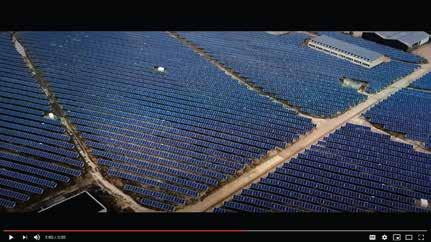
https://t.ly/s7mE









